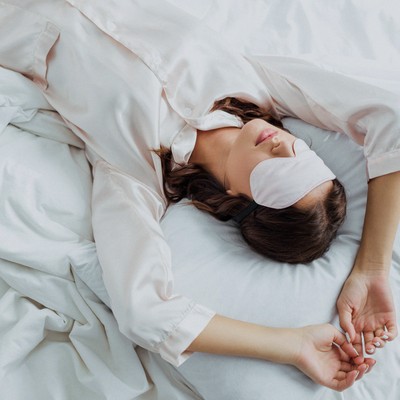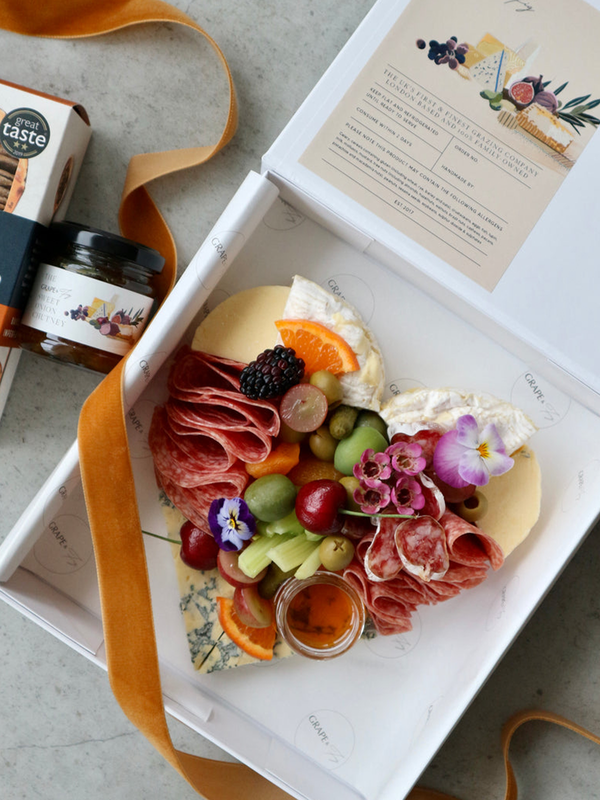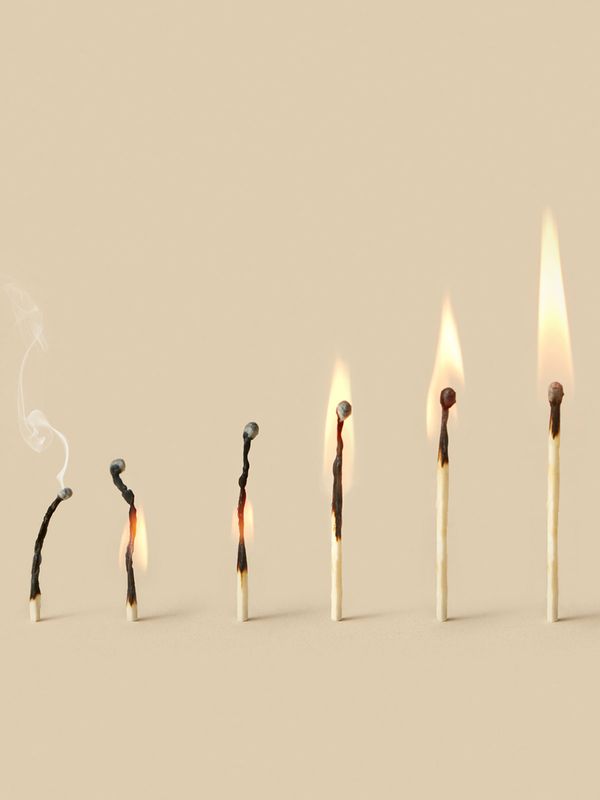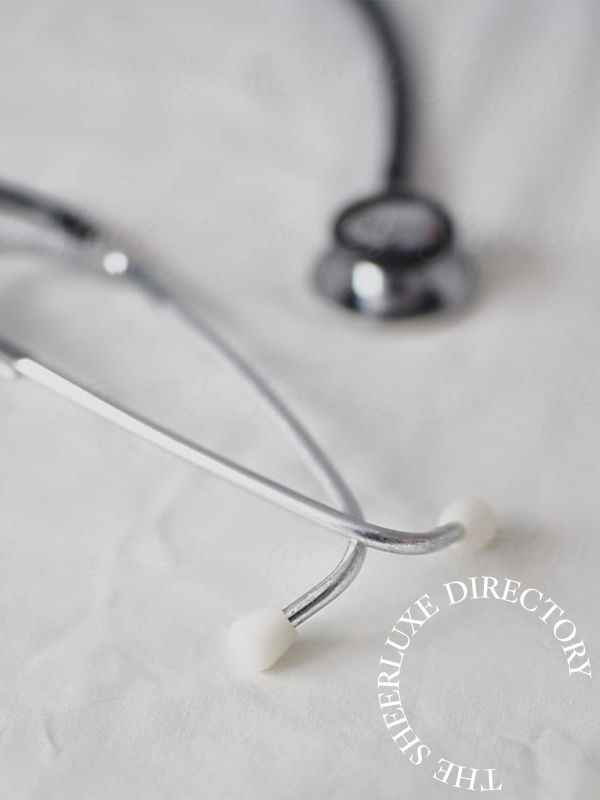
Sleep Rules From An Ex-Insomniac
Learn To Calm Your Mind
“One of the biggest mistakes I realised I was making with my sleep habits was not looking at my sleep in any sort of context. I didn’t appreciate that everything that happens during the day shapes our sleep: what, when and even how we eat; our hormonal balance; and our perceptions. I’d go to bed with an overstimulated mind and then expect to just switch off, which couldn’t and didn’t happen. Being proactive during the day about making sure my mind wasn’t what’s called ‘hyper-aroused’ when I went to bed made a huge difference to my sleep. One of the best things you can do is to simply learn to calm your mind. For me, this included taking action to release or redirect stress hormones so they didn’t pile up too high, as this leaves the mind in a state of ‘fight or flight’ at night, when we need to be in the opposite state of ‘rest and digest’. If you’re medically recognised as insomniac, you must be that much more proactive when it comes to stress management, as insomniacs suffer from emotional and physiological hyperarousal. Hyper-aroused people find it hard to unwind, struggle with stressful challenges, or simply stress when others don’t.”
Take Time For Self-Care
“Women are twice as likely to suffer from insomnia as men. They often lead incredibly busy lives with endless demands being made of them and don’t always feel able to give themselves the downtime they need to relax and take a breath, which then impacts sleep quality. Carving out enough time to unwind and offset the pace of life, or to do something that is just for you can be difficult, but even mini pauses, mindful moments or rewards dotted throughout the day will help make sleep that much more effortless and recharging. Plus, one recent study led by a team of researchers from Switzerland found that our brain prefers to replay positive memories from the day while we sleep, making those memories stronger. So, if we can try and have some positive experiences in our day, even little wins count, this will make our sleep less troubled and our long-term memories rosier.”
Rethink The Language You Use
“Don’t refer to yourself as a bad sleeper. Our words and thoughts have an immediate, knock-on effect on us, altering our physiology, expectations and behaviour, and in this case our sleep. You can tell yourself you’re a terrible sleeper – you wake every day at 4am, you’re an insomniac – and live with this identity that you have given yourself. Or you can turn this on its head and tell yourself that your sleep is getting better and better, that you’ll sleep more deeply tonight than last night.”
Boost Your Exposure To Light
“Increasing the amount of daylight you’re exposed to is one of the top things you can do for better sleep. We spend around 90% of our time indoors and artificial light is extremely dark compared to the light outside, even on an overcast day. At the same time, if it’s dark, your hypothalamus will action the chemicals needed to sleep. By blacking out your bedroom, eliminating light pollution and opening your eyes when you lie in bed, so that your retinas and brain can absorb the darkness, you can power this sleep-chemical reaction and beef up your sleep-inducing neurons.”
Support Your Happy Hormones
“To cancel out daily stress, you need to encourage healthy levels of your four happy hormones: dopamine, serotonin, endorphin and oxytocin. If you can get these up and running, they’ll feed into each other, keeping you happy and content, and in turn optimising your sleep. In fact, research suggests depression can lead to insomnia and insomnia can lead to depression, with 97% of those who are depressed reporting sleep difficulties. Being outdoors is a big one for me, surrounded by trees and open green spaces. Also great are family chats in front of the fire, an evening with a friend, a new book, a wander round an art gallery or a funny film. These will all reduce your stress chemicals, making it easier for you to sleep well at night.”
Try Listening To A Sleep Script
“This is a powerful sleep habit cue that can shift your sleep pattern for the better. Sleep scripts run through what should be happening in your mind and body as you prepare for sleep. When first sorting out my sleep, I recorded myself reading a short sleep script, and I now set a daily reminder to listen to this at 5pm. A sleep script helps change your thought habits in relation to sleep, but also how you feel, triggering physical and behavioural changes. Even a brief sleep script can become instantly relaxing and the repeated suggestions powerful.”
Read A Book
“Even something as simple as reading a paper book can cut stress by up to 68%, giving your stress chemicals time to subside. A six-minute read is enough to slow the heart rate and relax muscle tension. Reading is also an effective sleep-habit cue and a perfect stepping stone between day and night, helping you to unwind from, and draw a line between, a hectic day and your countdown to sleep.”
Ditch The Nightcap
“Alcohol is often seen as a sleep aid, but it decreases the quality of your sleep. It fragments sleep, meaning you wake up more often during the night, reducing the amount of deep sleep you have, which you need to repair your body from the wear and tear of the day. Alcohol can also block REM dream sleep. Dream sleep is not an add-on luxury that you can take or leave – your dreams are vital for your emotional health and for processing the day’s events. If you want to drink alcohol, your best bet is to drink moderately, earlier in the evening, leaving time for your body to process some of this alcohol and rehydrate with water before sleep. It’s also good to give yourself some nights off from alcohol every week to get the best sleep possible.”
Understand Your Sleep Cycles
“Once you know what goes into creating your sleep-wake cycle and what’s going on specifically with your sleep pattern, you can better understand why things happen. For example, waking in the middle of the night, often around 3am, is a very common sleep issue. The problem is this can become a habit that your brain and body locks into. Knowing the basic biology of sleep is crucial, so you can work with this. It’s perfectly natural to wake up between sleep cycles and being aware of this removes some of the stress that can otherwise make you even more awake. There’s lots that you can do during the day and in the moment that will weaken this pattern. One of the things you can do in the moment is to breathe deeply, as this will strengthen your sleep-promoting neurons.”
If You Can’t Sleep, Stay In Bed
“There are two schools of thought on whether you should get up or stay in bed if you can’t fall asleep. One argues that you should get out of bed and into another room, then return when you feel tired. The other argues that you should stay put. I am in the second camp. Resting in a dark room can be good for us if we relax into it. There’s a blurred line between rest and sleep, and we can use biology-based self-talk to actively help our mind and body get back to sleep.”
Have An ‘Armchair Offload’
“My biggest problem as an insomniac was that my head would be spinning with thoughts the minute I hit the pillow. My mind would start thinking about anything and everything, overriding any exhaustion, leaving me tired but increasingly wired. Try to instil what I call an ‘armchair offload’ before you go to bed – this will empty your mind of unwanted thoughts and help break the bed-is-my-time-to-think association.”
Take A Nap If You Need One
“If you’re someone who can happily nap during the day, it’s no bad thing. See it as a siesta to top up the sleep you had the night before, especially if it was less than seven hours. The general rule is don’t nap for too long or too late. A sleep cycle lasts for around 90 minutes, so if you’ve only managed to have four sleep cycles in the night, you could have another in the day, which would give you a total of seven and a half hours. Alternatively, you might just want a short power nap to keep you going. Either way, try not to nap beyond early/mid-afternoon, as this will weaken your sleep drive too close to bed, so you aren’t tired enough to sleep easily come night-time.”
Eat The Right Foods At The Right Time
“Chrono-nutrition – which is all about the ideal time to eat certain foods – makes perfect sense in the sleep equation. The consensus is that breakfast should be eaten within two hours of waking, followed by a nutritious, sit-down lunch and an early-ish dinner (7-8pm, if you’re going to bed at 11pm) with a late-night snack at least 30 minutes before bed, if needed. If you can include foods rich in the amino acid tryptophan (found in protein-based foods), this will give you the ingredients you need to create serotonin, which is essential to create sleep-inducing melatonin. Tryptophan foods include meat, fish, eggs, milk, cheese and yogurt, and plant foods high in protein such as oats, nuts, chickpeas, soya, beans and lentils. Plus, lunch and dinner need to include protein, vitamins, a small amount of fats, and ideally slow-release carbohydrates. If you want to go one step further, there are also functional foods that are said to carry a sleep-promoting punch. These include wholegrains, kiwi fruit, cherries, maca, walnuts and lettuce.”
Stick To A Routine
“The body relies on routine, as it’s made up of biological clocks that are hard-wired to keep time with the sun and each other, to keep the body running to a 24-hour pattern that includes your sleep-wake cycle. The stronger your routine, the easier it is for those clocks to stay in sync. The more chaotic your routine, the more confused and out of sync the clocks become. In an ideal world, we’d all go to bed and wake up at the exact same time seven days a week. In the real world, if we can try to keep as smooth a routine as we can, without having a dramatically different timetable at the weekend, this will help keep your sleep cycle on track.”
Teach Yourself To Sleep by Kate Mikhail is available to buy now. For more information, visit KateMikhail.com
DISCLAIMER: Features published by SheerLuxe are not intended to treat, diagnose, cure or prevent any disease. Always seek the advice of your GP or another qualified healthcare provider for any questions you have regarding a medical condition, and before undertaking any diet, exercise or other health-related programme.
DISCLAIMER: We endeavour to always credit the correct original source of every image we use. If you think a credit may be incorrect, please contact us at info@sheerluxe.com.






















